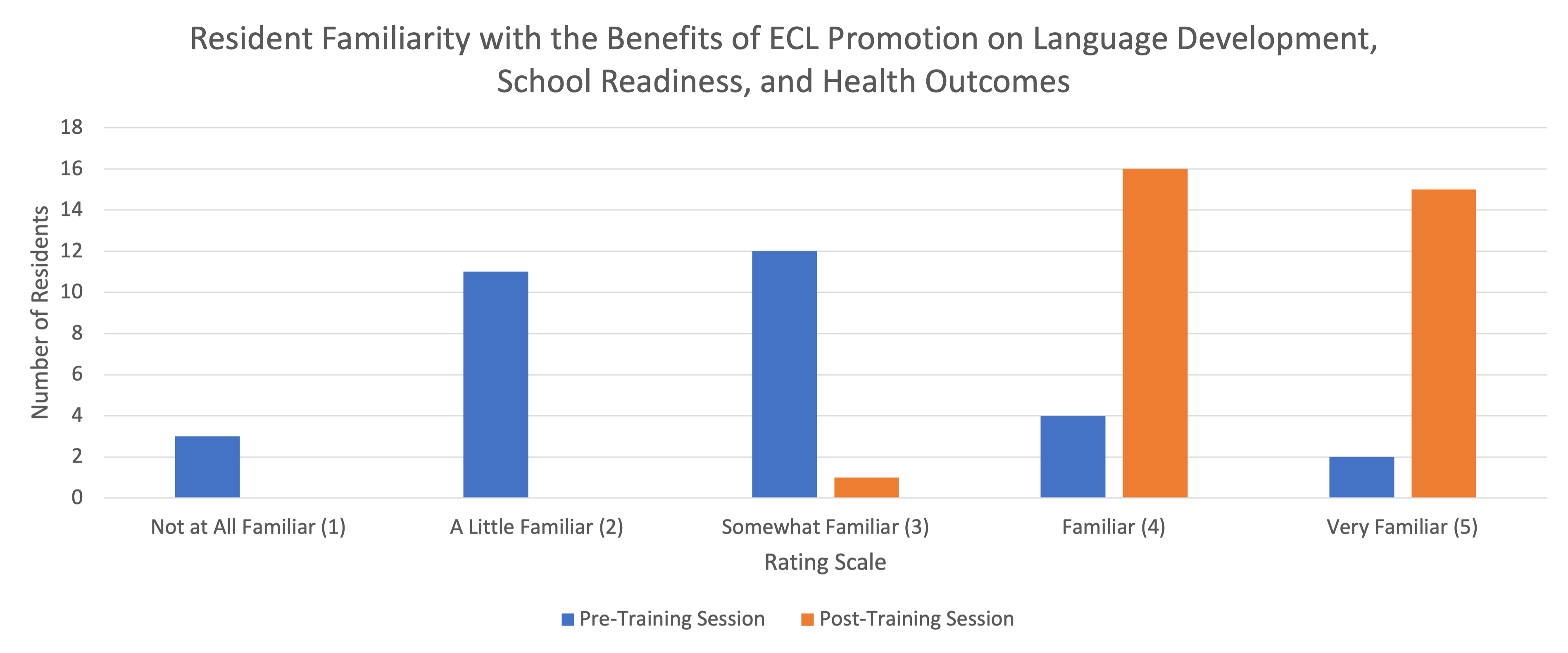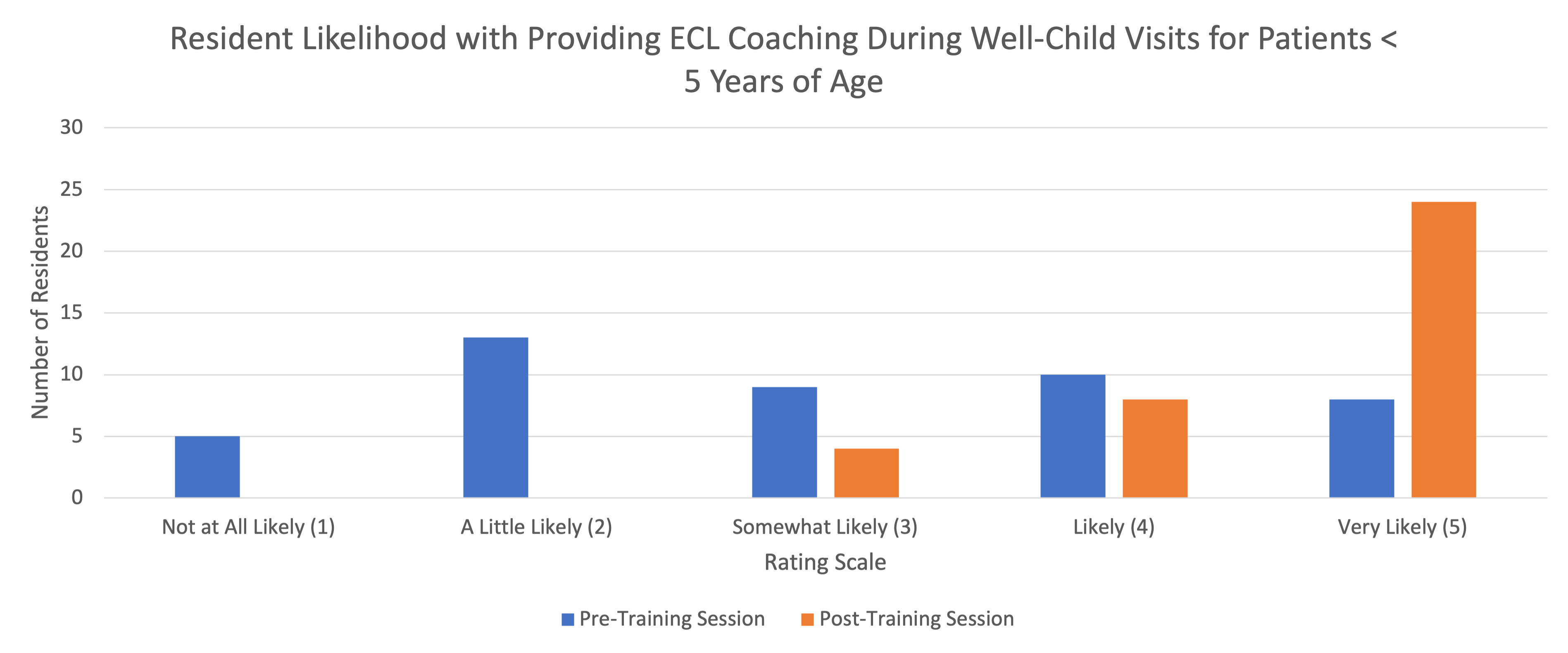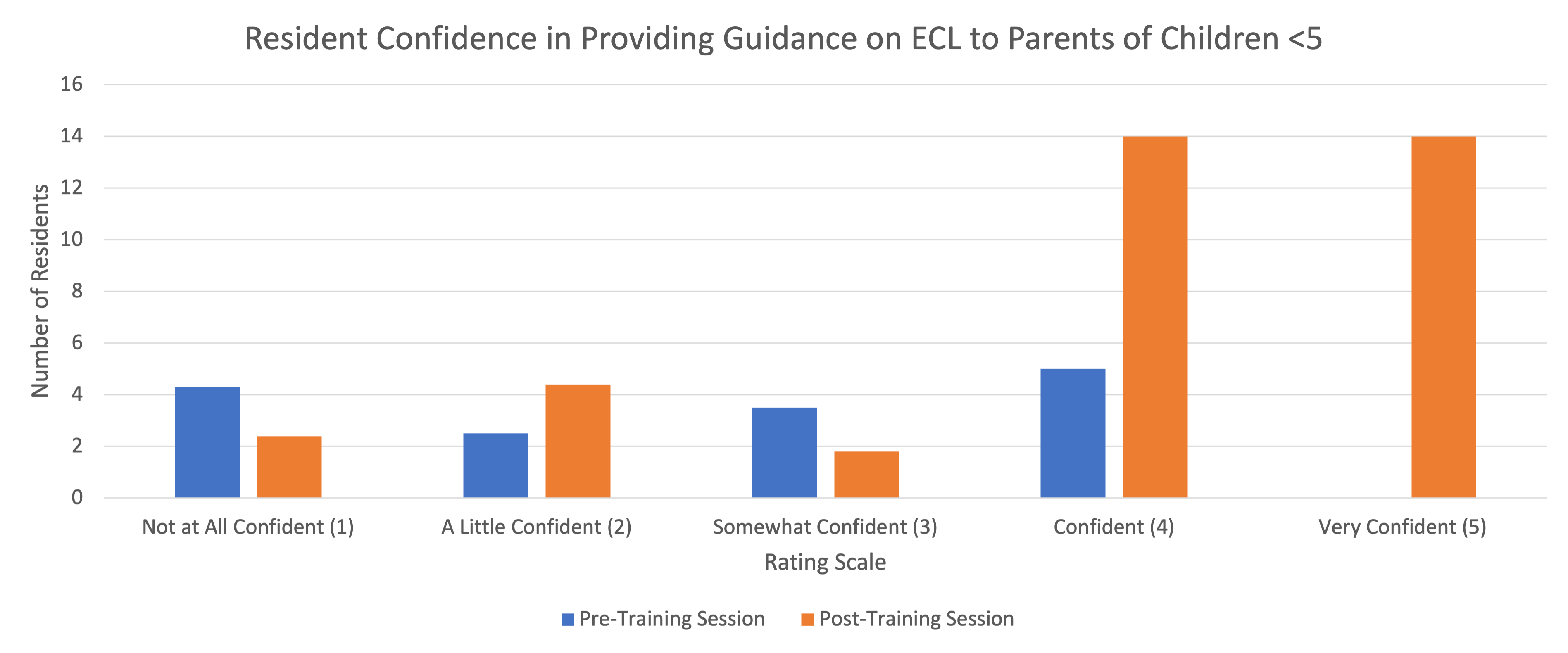Medical Education
Session: Medical Education 7
433 - A Pilot: Implementation Of Early Childhood Literacy Promotion Training in a Pediatric Residency Program
Saturday, May 4, 2024
3:30 PM - 6:00 PM ET
Poster Number: 433
Publication Number: 433.1537
Publication Number: 433.1537

Vi H. Pham, MD (he/him/his)
Resident Pediatric Physician
University of Texas Southwestern Medical School
Fort Worth, Texas, United States
Presenting Author(s)
Background: Early childhood literacy (ECL) promotion during well-child visits (WCVs) can promote positive parenting, foster language development, and combat detrimental effects of adverse childhood experiences. However, physician trainees have little exposure to formal training on ECL.
Objective: A team of pediatric residents created and implemented a training session on ECL to assess the impact such training could have on resident knowledge about ECL and resident likelihood of providing ECL promotion during WCVs.
Design/Methods: An ECL training session was designed that was evidence-based and utilized resources from Reach Out and Read (ROR). The training was given to pediatric residents in an urban academic medical center during the 2022-2023 academic year. Residents participated in a didactic session that described ECL and its relationship to school readiness and socioeconomic outcomes. Residents watched videos created by ROR which demonstrated ECL coaching in clinics and how to use books as tools to interact with patients and parents. During the final part of the didactic, residents participated in role-playing to practice ECL coaching in simulated WCVs. The facilitator then led a de-brief and discussion in which residents brainstormed ways to promote ECL within their practice. Participants completed pre- and post-training surveys, rating questions on a 5-point Likert scale to gauge the impact the training had on their knowledge of ECL and their likelihood of providing ECL promotion. Responses to surveys were analyzed for statistical significance using chi-squared analysis, comparing the number of participants who responded to questions on the lower-end of the scale (1-3) to the number who responded on the higher-end (4-5).
Results: ECL training was provided to 44 pediatric residents; 32/44 residents (73%) completed the surveys. Most residents (84%) reported no previous formal training on ECL. In response to pre- and post-survey questions, residents reported increased familiarity with the benefits of ECL promotion within WCVs (p <.001) (Image 1), higher likelihood of providing ECL promotion during WCVs (p <.001) (Image 2), and a higher level of confidence in doing so (p <.001) (Image 3).
Conclusion(s): Providing training on ECL and discussing the benefits of coaching parents on ECL during routine ambulatory care of young children can provide trainees with the skills and confidence to discuss ECL with parents and may increase the likelihood that residents will promote ECL with families during WCVs.



